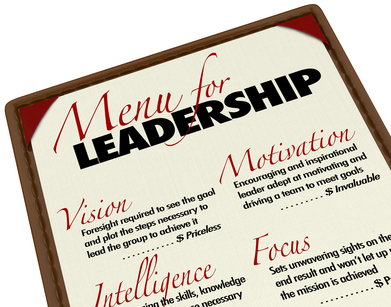People with clear written goals accomplish far more in a shorter period than people without goals can ever imagine ~ Brian Tracey

Goals are the foundation of your dreams and the driving force behind your desired lifestyle. Whether your have an ambition to run a marathon or take up heathy eating , setting goals and having them written down will increase your chances of achieving success.
If we all agree that goals are important to success, why do many people not have goals? Of the people that have goals, only a few have written goals and fewer still regularly review their goals and plans.
Whatever your reasons for not having a written goal, let me give you 10 reasons why you should have written goals for all areas of your life.
- Take Charge And Take Control Of Your Life
Your decision to set a goal or goals is an indication that you have made the choice to take control of your life. You have decided to be intentional about your life and about achieving your dreams and desires.
There are two kinds of people and businesses. Those who get what they want and those who take what they get.
The act of goal writing means you are no longer leaving events to chance. You are no longer living life by default but are actively engaged in the design of the life and lifestyle you want.
- Create The Future You Desire
Goal setting and writing will help you take a good look at your future. If you don’t like what you see, then you have the opportunity to design the ideal future for yourself. This is also called having a vision for your life.
I must add a word of warning here. Just because you have created an ideal world is no guarantee that you will end up in the place as you have envisaged. But your long term vision will serve as a catalyst that provides the motivation you need in the short term for goal achievement.
Most people will spend more time planning for their next holiday than planning for their financial future. Take some time to think beyond your next holiday and develop a plan for your life.
- Recover From Setback And Move Forward

Many things happen to us in our lives that we have no control over. One thing in our control is our response to events that happen to us.
With goals in place, you are able to view an adverse event as a temporary setback. If you have to amend your goals in the light of new information, you are equipped to do so.
Sometimes, there is no need for a change direction. But a change in the timing for the achievement of your goals.
- Get The Assurance That You Are Making Progress.
Part of goal the setting process is to set markers along the way that will help you measure your achieved progress. This gives you an objective way of knowing whether you are moving forward or simply going round in circles.
Being busy with work is not the same as making progress. If your effort is not contributing to but rather taking you away from your desired goals, knowing this as early as possible in the process will help you take corrective action.
Progress has nothing to do with speed, but with direction ~ Author Unknown
- Maintain Focus On Your Dreams
Distractions are a part of life. As I continue the process of writing this book (assuming I am writing a book), I have to battle with short term and long term distractions. Since I have a goal of completing the book by a specified time, I continually look for ways to overcome distractions that can delay or completely derail my goal.
Having goals that are time bound will help you maintain focus on what needs to be done.
If you do have a long term project, then breaking it down into smaller shorter term goals will increase your focus and the chances that you will reach your goal.
- Keep Going When You Are Unsure

Think of your goal as a destination and your plan of action as a roadmap for arriving at your destination.
Whenever you are unsure of when you will achieve your dreams or goals, simply take a look at the map to re assess where you are on the journey.
Remember that having written goals is not enough. You must continually work on the process of implementing the plans that will drive you towards your goal.
- Increase Productivity
Your goal is the end result or your destination; to use the map analogy. But there are many other destinations along the way. These are the smaller shorter term subgoals and tasks that need to be done to reach the bigger goal.
Scheduling tasks to be done on a daily basis and then allocating blocks of time to work on these task will increase your productivity and help you become more efficient with your time.
You will become a master at working on what you want when you want. You have allocated the time and you are utilising the allocated time for the scheduled task.
- You Become Self Disciplined.
Just because you have scheduled a task does not mean you will work on the task in the scheduled time. If your destination is attractive enough, you will not give up on the journey.
Self discipline, diligence and determination are some of the ingredients for the journey.
If there are areas where you lack discipline, try setting some goals in that area and then commit to implementing the steps to achieving you goal.
- Grow And Mature

If you have the courage to set goals that will stretch you and take you out of your comfort zone, you will reap tremendous growth in your life and business.
What you get by achieving your goals is not as important as what you become by achieving your goals ~ Zig Ziglar
You become a bigger and better person. You will acquire new knowledge and skills that can be deployed to take you to new heights unimagined.
So don’t set goals based on your present position. Use your imagination and tap into your inner desires to set goals that will stretch you.
- Meet The Right People
Big dreams must be bigger than any one person. If you can do it alone, then you probably have not set yourself a big enough challenge. It will require building the right team and having the right accountability partners to achieve a big vision.
Meeting the right people will not automatically happen. You need to creatively and persuasively convey your imagined future into the hearts of people to inspire them and move them to action.
Your clearly defined goals, well thought out and written plans for action and choice of words will help determine who you will attract.
I am aware that not all ten reasons will apply to you. So take some time and think about the ones that resonate with you. Go to work and set goals for what you want to achieve. Write down these goals along with action plans and commit to the implementation of your goals.
Have you got a written plan for your life? How did you benefit from implementing the plan?
Leave a comment.








